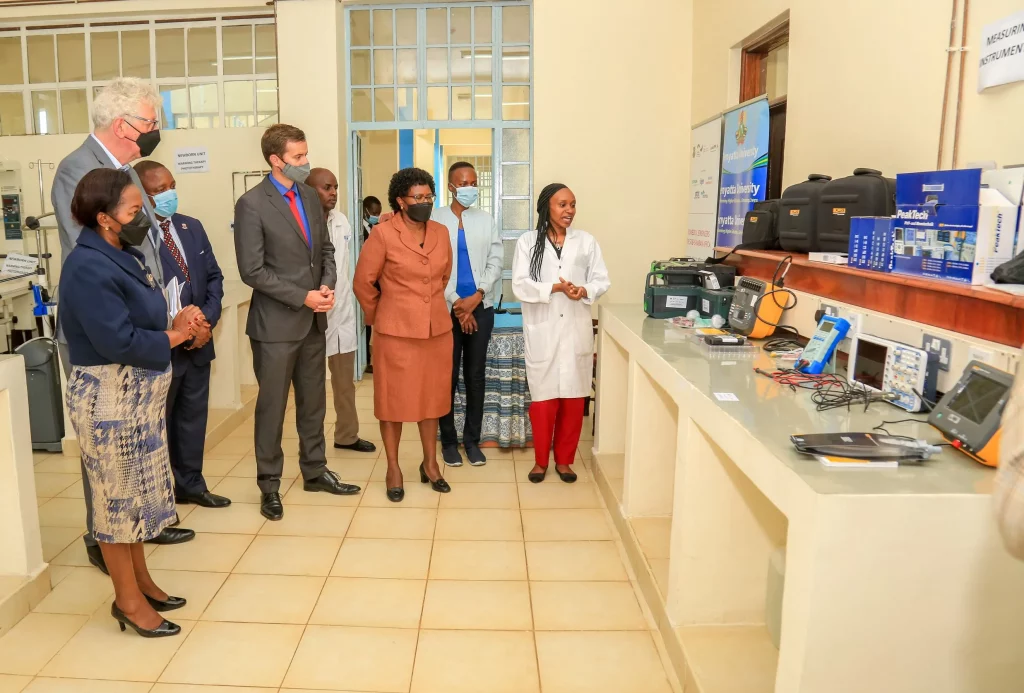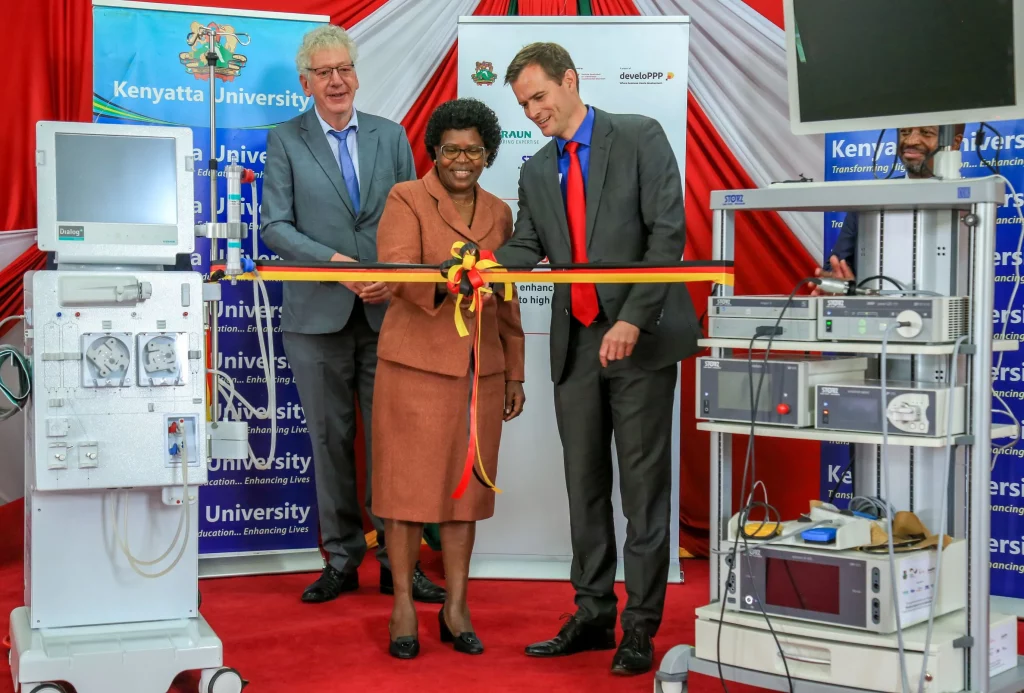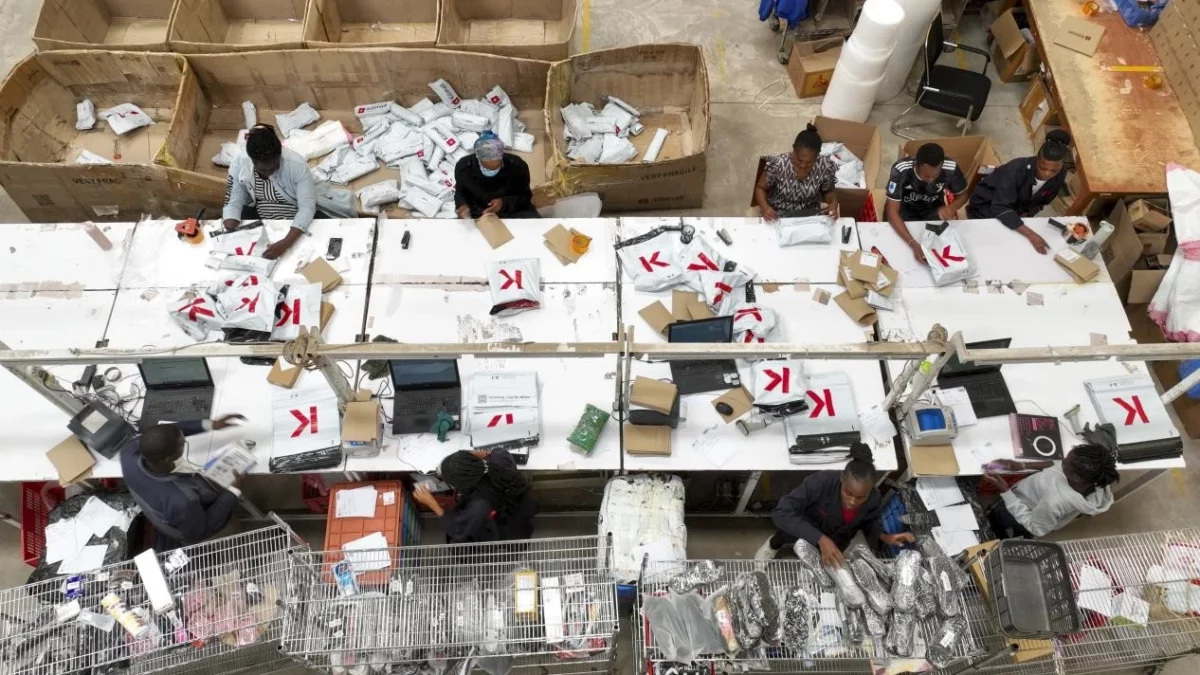Biomedical engineering students at Kenyatta University are set to benefit from practical skills training after the institution has been equipped with medical equipment from the German Development Cooperation and five private German medical device manufacturing companies.
This is part of a public-private partnership with a duration of over 4 years that seeks to strengthen biomedical engineering capacity, enhance practical education and training, as well as facilitate access to high-quality healthcare in Kenya.
The state-of-the-art medical equipment worth KES 84 million will be used for training in dialysis, infusion therapy, management of sterile supplies, endoscopy, radiology, haematology, anaesthesia, ventilation, monitoring and warming therapy.
This strategic alliance is implemented by the Deutsche Gesellschaft für Internationale Zusammenarbeit (GIZ) GmbH, through the develoPPP programme and in partnership with five global leaders in the manufacture of medical equipment – B. Braun, Karl Storz, Drägerwerk, Siemens Healthineers and Sysmex. It started in April 2018 and will end in December 2022.
Specifically, the partnership seeks to increase the supply of qualified biomedical engineers in Kenya by introducing a Bachelor of Science in Biomedical Engineering that provides training in practical skills that match the labour market needs. So far, 196 students have been enrolled under the new programme, with 72 having graduated and now working in various sectors of the economy. The implementation of the project is being undertaken in close cooperation with the Ministry of Education and Ministry of Health, as well as public and private hospitals in the country.
Speaking during the handing over ceremony, the Acting German Ambassador Mr Thomas Wimmer noted, “The practical orientation of the new training also contributes to the important reform objective of producing industry-ready graduates. Additionally, it is a recognition of the crucial role that university education coupled with Science, Technology and Innovation plays towards making Kenya a knowledge-based economy.” He reiterated continued support and collaboration by the German Government to address areas of mutual interest with Kenya.
The medical training equipment were received by Prof. Waceke Wanjohi, the Acting Vice-Chancellor at Kenyatta University. She echoed the need for the training of biomedical engineers to support the installation, operation, repair and maintenance of clinical equipment in health care facilities for patient use.
“The development of training curriculum in partnership with international industry leaders in Biomedical Engineering and the handing over of this equipment, greatly compliment the quality of our training at Kenyatta University. This support adds to our commitment as a University to deliver quality education,” she added.
Also present at the official handover was, Mr Bodo Immink – GIZ Kenya Country Director, representatives from all the five private German medical equipment companies, as well as trainers and students from Kenyatta University engineering department.

[Rading Biko/SwitchMedia]
The new training curriculum at Kenyatta University was adapted to make it practical through support from Aachen University of Applied Sciences (FH Aachen), Germany.
The delivery of the course combines theoretical and practical training, including student placements at labs and hospitals.
Initial equipment for the training was provided by GIZ. The newly added equipment provided by the five partner companies has been installed in training labs that were upgraded by Kenyatta University.
In addition to availing the equipment, the companies trained the lecturers and support staff in the operation and maintenance of the equipment.
Graduates will be qualified to work as biomedical technicians in healthcare facilities and as trainers, consultants, and sales representatives in a wide variety of fields in the health sector.




























